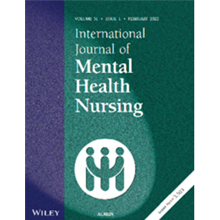본문
Process of healing from sexual violence among young women in South Korea

By prof. Chiyoung Cha,
Division of Nursing
Research Profile
chiyoung@ewha.ac.kr
Survivors of sexual violence frequently experience adverse long-term physical, psychological, and social health outcomes. As damage to physical, psychological, and social health persists for a lifetime, exposure to sexual violence at a young age and incomplete healing from the experience frequently result in long-term negative health effects for survivors. In addition, sexual violence during childhood increases suicidal ideation threefold during adolescence and doubles the frequency of suicide attempts during adulthood. Healing is a dynamic and progressive trajectory that involves positive development beyond the restoration of pre-trauma functional levels. Healing occurs in diverse ways that are influenced by cultural background. In this context, understanding healing from sexual violence requires consideration of cultural context.
To learn about the healing experiences of sexual violence survivor young women in South Korea, we employed grounded theory and the Photovoice method. We utilized the grounded theory method to identify a unique, unspoken healing process among young women who had experienced sexual violence. We incorporated the Photovoice approach into our study design to encourage young women to share their healing experiences.
Based on the definition of adolescents in South Korea's Framework Act on Youth, the participants in this study were women aged 18 to 24 who had experienced sexual violence.Using purposive sampling, we identified 29 individuals who had experienced sexual violence for participation in personal interviews and Photovoice projects.The average age of the study participants was 22.07 years, and they had a range of experiences with sexual violence, including sexual harassment (16 participants) and rape (13 participants). On average, participants were 12.97 years old when they first encountered sexual violence. The collection of data occurred between September 4 and October 25, 2017 through advertisements on the subway in a metropolitan area. The process of collecting data consisted of an individual interview followed by a Photovoice activity. Each interview lasted roughly 40–94 minutes. The primary interview question was, "Can you describe your healing from sexual violence?" Additional exploration questions included, "What factors facilitated or prevented your healing?" and, "Why do you believe it was beneficial or not beneficial?"
Participants were asked to collect two to five photos, drawings, or symbols that represented their healing experiences and to write a reflection on what each photo was, what was happening in it, what it meant to them, and why it was significant in representing their healing experience. We collected a total of 78 photographs containing participant commentary.
In a society that places the blame on the victim, young women who had experienced sexual violence reported feeling excluded and alone. However, with support, they began to turn in another direction.They tried reconnecting with society and re-identifying themselves and these events by gradually transforming sexual violence into a stepping stone in their lives. This process included internalizing anger, cutting off connections, reaching a turning point with support, restoring connections, struggling through individual internal processes, and transforming sexual violence into a stepping stone.
This proposed theory of healing from sexual violence among young women in South Korea differs from the conventional beliefs that disclosure is the most effective healing method.Instead of disclosing and expressing their suffering, young women in this study re-identified themselves by traversing a lengthy path of introspection. In addition, they grew up as a result of their ceaseless efforts to heal, and they ultimately re-identified and re-evaluated the significance of their traumatic life experiences as stepping stones for their lives. The social process proposed in this study could aid in the development of a tailored intervention and serve as a practical guide for young women and their families who lack guidance when healing from sexual violence in Asian countries. A multidisciplinary care team should assist young women who have experienced sexual violence with healing, self-identification, and the development of future life goals, taking their developmental stage into account.
* Related Article
Chiyoung Cha PhD, Mi-ran Lee PhD, Healing from sexual violence among young women in South Korea, INTERNATIONAL JOURNAL OF MENTAL HEALTH NURSING, Volume 31, Issue1, February 2022
